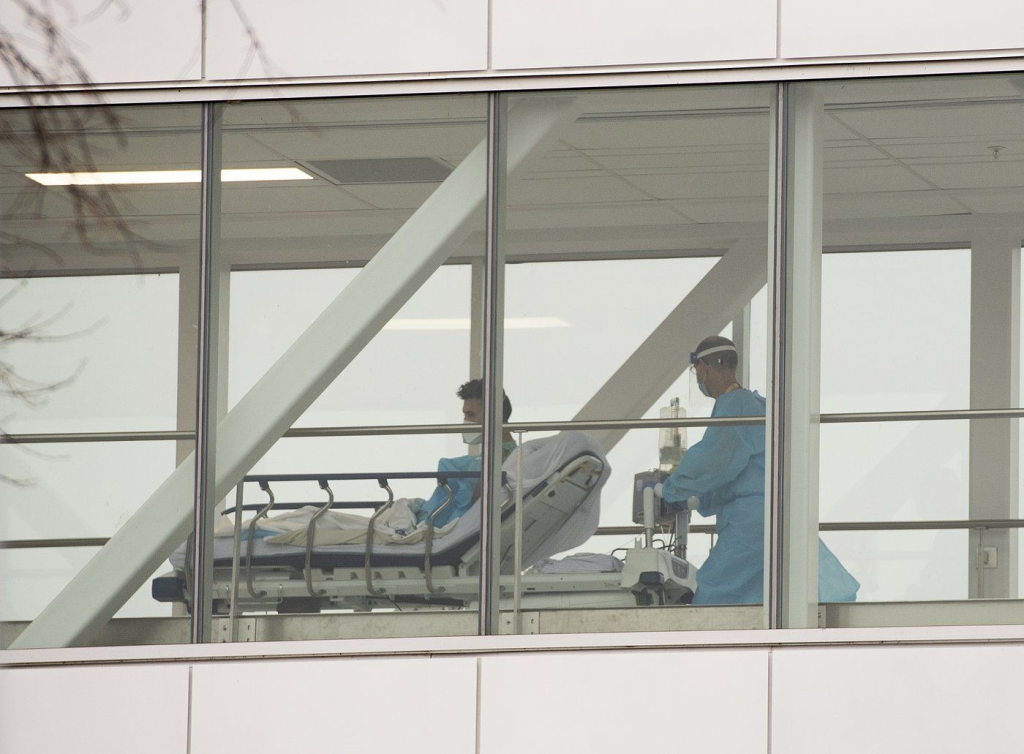Universities are adapting their medical curricula to take account of ageing

Posted April 5, 2025 1:45 pm.
Quebec’s ageing population is forcing doctors to adapt their practices, because caring for the elderly is very different from caring for a young adult. University geriatrics programmes are struggling to fill the places available, but departments of medicine are working hard to better equip future doctors to deal with the special needs of the elderly.
Seniors are the main clientele of most specialist doctors, including family doctors.
Marc Bouchard, Director of the Doctor of Medicine programme at Université Laval, recalls that in the 1990s, he was already hearing talk of a “grey tsunami” about to hit Quebec. In his opinion, the tsunami has arrived.
“As the population ages, there are more and more elderly people. These elderly people have more and more co-morbidities. This is becoming the bread and butter of everyone’s medical practice,” he says.
Doctors’ academic careers, therefore, need to be adapted to the elderly because these patients have specific characteristics that are not present in younger patients. As an orthopedic surgeon, Dr. Bouchard gives the example of an anti-inflammatory that he would like to prescribe to his elderly patient. “It’s not the same thing as prescribing it to an athlete who has just sprained his knee. The doses will be different, the types of molecules will be different,” he explains.
Family doctors are doing well
Universities are aware that medical curricula need to adapt to an ageing population. Already, several have modified their curricula to include more courses – practical, theoretical, and clinical – focusing on care for the elderly. Some faculties have also added compulsory placements in geriatric practice.
In addition, emphasis is being placed on clinical situations that particularly affect the elderly, such as hip fractures, cognitive disorders, delirium, polypharmacy, and other geriatric syndromes.
Medical schools must cover all Canadian programs. It is the Medical Council of Canada that establishes the bases that must be covered within the programmes, but each university can then adjust this to suit its own tastes.
In Quebec, the medicine programme is offered by four university faculties. At the Université de Montréal, McGill University, Université Laval and the Université de Sherbrooke, a programme in care of the elderly can be completed after a residency in family medicine.
Dr. Julia Chabot, a geriatrician and vice-president of the Association des médecins gériatres du Québec (AMGQ), has high praise for the work of general practitioners. In her view, the basic geriatric training they receive enables them to treat common syndromes in the elderly well.
“Where the geriatrician’s role comes into play a lot more is in situations that are a little more specific,” she says. For example, if a patient’s cognitive assessment seems to show something, but it’s not a classic case.
“I think there’s always room for more training in geriatrics, given the aging of the population, but having said that, I’m always really impressed by the way my family doctor colleagues take charge of their patients,” says Dr. Chabot.
Difficult recruitment
The Université de Montréal offers a two-year geriatrics programme. It has managed to fill all the places in this programme on only three occasions in the last six years. Université Laval has achieved the same result with a different programme, its geriatrics residency.
The Université de Sherbrooke’s Faculty of Medicine and Health Sciences offers a postdoctoral programme in geriatrics. The Université de Sherbrooke has never filled all the places available in this programme over the past six years, but it should be noted that its Faculty of Medicine offers three times as many authorised places as Montreal.
The difficulty of recruiting medical students to geriatrics programmes is not unique to Quebec. Across Canada, medical schools are struggling to fill all the places in these programs, according to Dr. Josée Filion, director of the geriatrics programme at the Université de Montréal. In her role, she meets several times a year with other program directors at Canadian universities offering medical courses.
Dr. Filion said that in Toronto this year, around 50 per cent of the positions available in geriatrics programmes have been filled, and in British Columbia, none of the four places have been taken. “We’re trying to implement strategies to make geriatrics more attractive. This often involves elective placements quite quickly,” she says.
She also believes that possible breakthroughs in research, including in cognitive health, could help to attract people to care for the elderly.
On the other hand, the Association des médecins gériatre du Québec would like to improve training outside the university curriculum, by better equipping the various professionals, be they family doctors, nurses or other front-line professionals. AMGQ says it is ready to offer more training.
–This report by La Presse Canadienne was translated by CityNews








